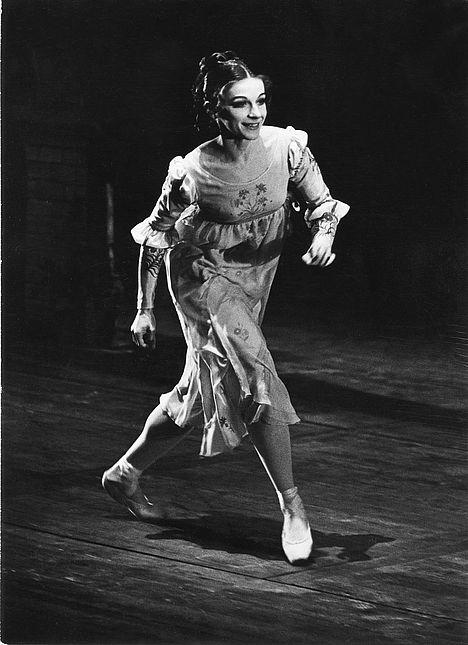Too much booing?
mainIn today’s Observer, Martin Kettle thinks that British audiences have lost their constraints.
The last time I went to the opera, the audience booed the production – even though they had bought tickets in the full knowledge of what it would be like.
So what should be done – stop the show? eject the audience?
Read Kettle’s piece here.






The issue of booing is ambiguous. On one hand more interaction and bidirectional communication of a generally stifeled and borderline brain dead classical music audience is to be encouraged.
On the other hand the outburst of disappointment too often is aimed at the wrong people and voiced as well by the wrong people, not by the most understanding but by the most opinionated.
On top of that it is used for nepotistic means. Possibly the majority of todays “bravo” and “boo” orators in the audience have pro or contra political/economic interests, particularly obvious in any high calibre live transmission.
I think Mr Kettle rather misses the point, in grouping production teams with performers, that they are not performers, and that people who would never dream of booing a performer, no matter how bad they were, nonetheless feel justified in booing a production team’s curtain call because they are not subject to the same momentary conditions, having had months in which to perfect their offering.
My respectful answer to Norman’s question is that the show cannot be stopped, as it has already ended by that time..
My own view is that the vast majority of today’s production teams in the West should not be allowed anywhere near any opera house, and that those wishing to see great works of dead composers and librettists staged as their creators clearly stipulated in their rubrics should take holidays in South Korea, Russia,. Eastern Europe or visit the Italian teatri di traduzione.
Newly-written works and those whose creators are still living are, of course, a whole different ball game, rather than a trusted bequest.
On visiting the Louvre, who would wish to see the Mona Lisa hung in a bright pink plastic frame? That is the analogy of these inappropriate perpetrations which rewrite the stories they are meant to elucidate, to their detriment, and to merely placate the ego of the interceding megalomaniac so-called stage director.
Time was when such chicanery was unheard of. The pity is that the young, on a first encounter with a work. or even the art form itself, imagine they are seeing the real thing. “Figaro’s Wedding? Oh yes! The one which takes place on a rubbish dump! I’ve seen that one.” M’.lud, I rest my case!
“the show cannot be stopped, as it has already ended by that time..
Remember Mr. Freeman, audiences have booed mid-performance and before intermissions in the past.
The Mona Lisa allegory is a good point. Pink frame is one extreme, but you don’t mind seeing her lit by electric light, done by intention to improve the visibility compared to the candle or oil light the painting was consumed by the contemporaries, don’t you?
There is a thin but decisive red line between ill guided historicism and contemporary performance practice for perception by a contemporary audience.
Even if we were able to consume a Handel opera or a Shakespeare play in the exact multi-sensory reenactment of its historic first performance, it would be a different experience for our mind, compared to the minds of our ancestors in the audience.
Simply because our minds are shaped by the perception of a different environment than their minds back then.
Thus the only valid concept of any contemporary performance practice that respects the creator of the artwork, is to build the bridge between the historic creator and the contemporary consumer by aiming for similar mental and emotional impact and perception.
In other words, it *could* be that in order to create the same order of irritation about breaking a taboo a simple public staging of an aristocrat’s affair with a subjugated maid was in “Figaro’s wedding” back then, for today’s audiences you would have to perform it accompanied by some contemporary taboo breaking, e.g. public pornographic display, or other things that go against common contemporary “good taste”… possibly…
It does not happen often on SD, but I wholeheartedly and warmly and entirely agree with this comment which hits the painful nails loudly and persistently on the head.
I have ben in Paris when they booed after an aria, in the interval and at the end. Aimed at a performer this time, alas rightly though they could have made allowance for his cold.
Just for the sheer pleasure of it. George Osborne being booed at the 2012 Paralympics
https://www.youtube.com/watch?v=qqM0Ube0oLs
Some theatre and opera directors actually crave The Boo (i.e. at Bayreuth). It’s a measure of their “cred” as provocateurs.
‘even though they had bought tickets in the full knowledge of what it would be like.’
What arrant nonsense from Martin Kettle.
Tickets were booked around 6 months before the performance (I have had tickets for nearly a month for May performances at CG) and there was no mention at the time of booking as to what was going to be imposed on us – there never is.
Martin Kettle should get his facts straight before he writes such drivel
But you will have known the name of the director and probably the designer at the time of booking and it’s a quick and easy matter to find out online about their style, philosophy and likely angle. To book for a Bieito production (or for that matter a Vick, Jones or Kosky one) and show up expecting something that looks like a Zeffirelli revival, you’d surely need to have led a very sheltered opera-going life.
In the case of the three major operatic productions at CG in May, Lucia di Lammermoor, Tannhauser and Oedipe, the ROH website gives clear indications as to the nature of each production, even stating where and when they were both first staged in the case of the two revivals. Production images of those two are clearly displayed, and reviews can be googled in seconds. For the new “Lucia” it clear says that the production is set in the 1840s, and there’s a full-length interview with the director, discussing her vision of the piece, published a good 2 months before tickets went on sale.
Not exactly “no mention at the time of booking as to what was going to be imposed on us – there never is”. Or perhaps, as the saying goes, you’d rather have your grievance?
Lol! Quite so, Halldor! They banned my post on their blog which was unfavourable about the interview, not surprisingly. It has since been doing the rounds by email instead. Anyone is welcome …
Btw apologies for typo in previous post: tradizione!